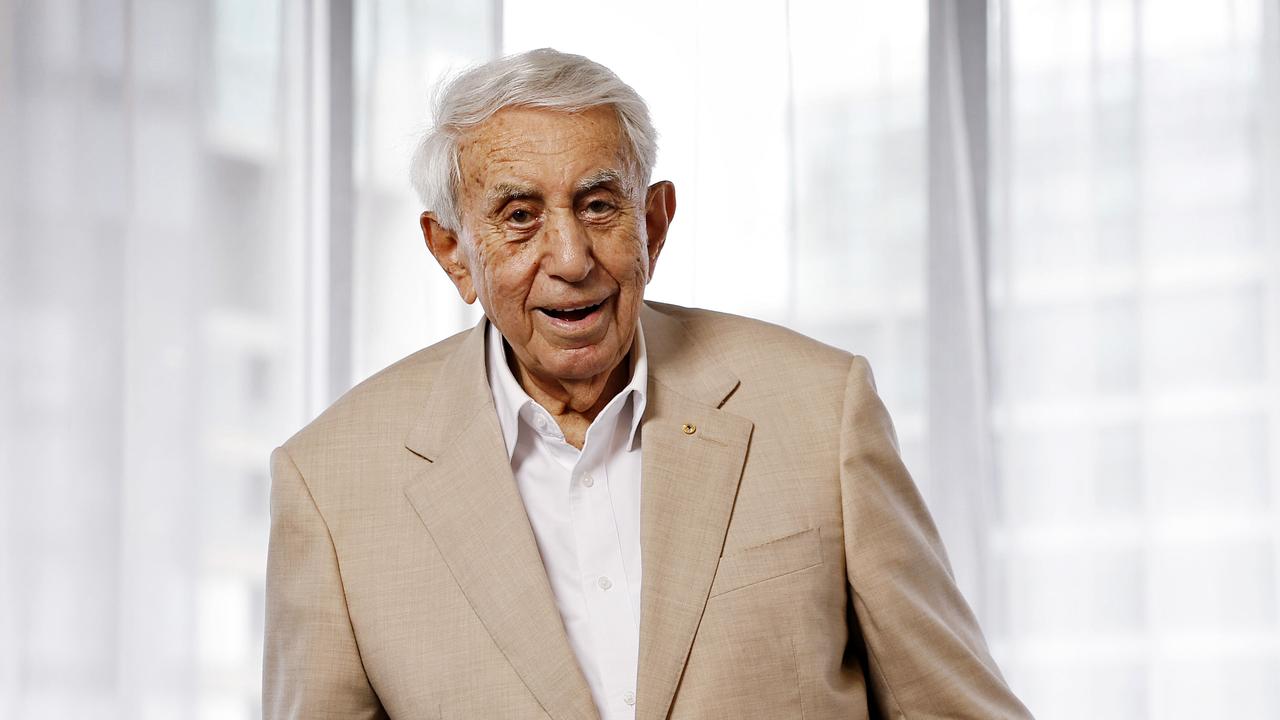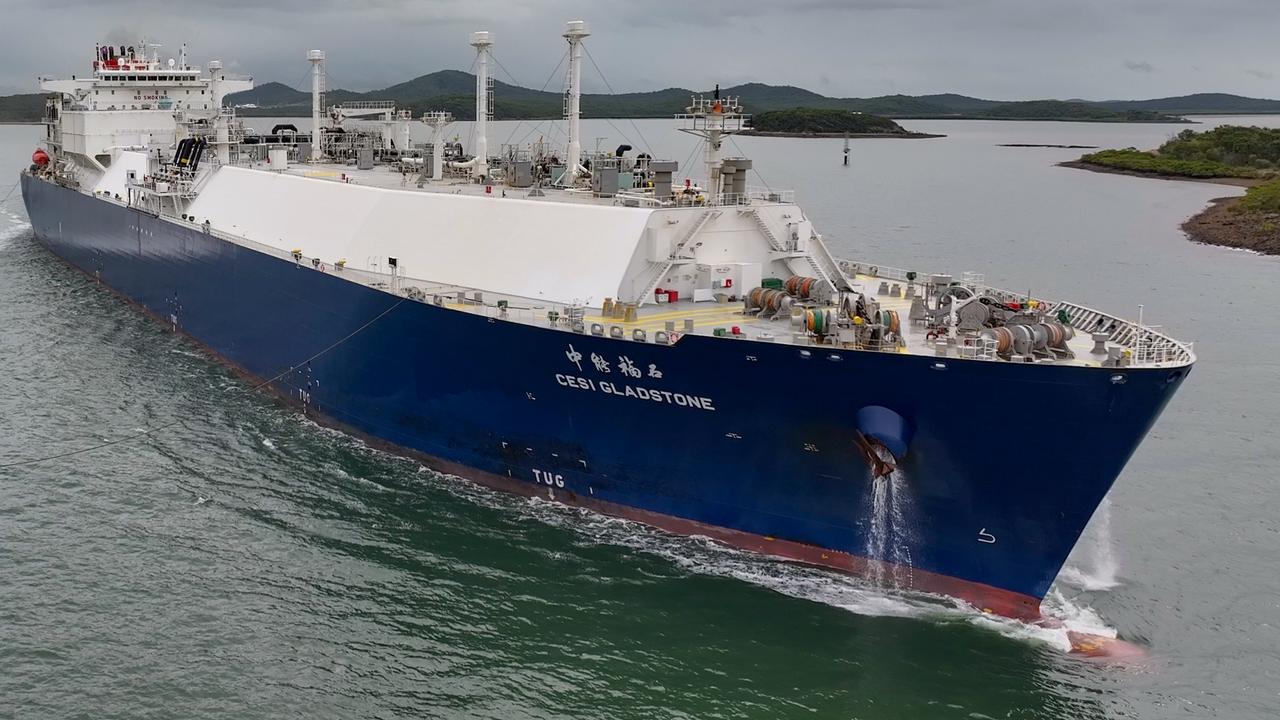Mike Cannon-Brookes remains a ‘believer’ in takeover bid for AGL Energy and has $20bn of funding for clean energy
The world’s largest climate transition fund wants to use AGL Energy as a marquee deal to slash Australia’s pollution levels and accelerate a move to net zero emissions.

The world’s largest climate transition fund wants to use AGL Energy as a marquee deal to slash Australia’s pollution levels and accelerate a move to net zero emissions, with plans to gain access to the power giant’s books and bring in new investment partners to seal a takeover.
AGL rebuffed an $8bn bid by Canada’s Brookfield and tech billionaire Mike Cannon-Brookes on Monday, saying it materially undervalued the company, insisting its own plans to split the company into two by June would deliver better value to shareholders.
The consortium partners said they were undaunted by the initial rejection and planned to seek meetings with AGL shareholders, engage with the board and potentially bring in more funding partners to get a deal over the line.
“Capital is required not just to invest in the clean, green stuff that everyone likes, but to invest in the businesses that need to transition from being heavier emissions and to get to lower emissions,” Brookfield Asia-Pacific chief executive Stewart Upson said. “It’s designed to invest in a business like AGL, and then responsibly over a period of time – not immediately and say over 10 years – responsibly oversee the accelerated transition of the business.”
Brookfield has a $US15bn fund to invest globally in companies which it sees as ripe for reinvention. It plans to focus on holding talks with AGL’s board, led by chairman Peter Botten, while also keeping the door ajar to bringing in new investors.

“We have a chance to go back and engage with the company again. And look, this is just how these things go in Australia. We’ll have the opportunity to engage with the company and see if we can work our way towards something that company can be supportive of. We’ll look forward to getting into due diligence and firming things up,” Mr Upson told The Australian.
Sources said new investors could join the consortium during the bid process, a strategy previously used by the Canadian company.
The Mike Cannon-Brookes-fronted consortium has vowed not to take AGL Energy’s giant coal plants out of the system until equivalent replacement generation is in place, amid fears the move could derail the national power grid, and said a takeover plan would yield 10,000 jobs.
Brookfield will fund 80 per cent of the deal, with Mr Cannon-Brookes at 20 per cent. The billionaire said he had funding in place for the transaction.
“We’re in a very fortunate position to have a lot of resources. And we make no bones that Grok Ventures and the family office and my wife and I are putting those resources towards trying to be catalytic, investing in ways that will drive Australia and the economy forward and hopefully the world’s decarbonisation process forward,” he said.
“That’s been pretty clearly our goal. But they are investments. That means we’re always considering return and everything else and the impact and size of those. This happens to be a larger one than most, but it still has to have the maths that stacks up and the partners that stack up and the economics that stack up. And this certainly does.”

The investment partners have pledged $20bn of capital to fund the transition of AGL’s generation fleet, consistent with the 1.5 degree target outlined in the Paris climate accord.
They detailed on Monday a scheme to replace seven gigawatts of capacity through “a build-out” of at least 8GW of clean energy and storage, noting the consortium’s access to capital, renewables development capability and deep expertise in owning and operating high-quality infrastructure. It wants AGL to have net zero emissions by 2035, some 12 years earlier than the company’s current plans.
AGL rejected the bid as undervaluing the company, given the modest 5 per cent premium to Friday’s closing price. The consortium hit back, saying its $7.50 per share bid was a 20 per cent premium to the three-month average trading price.
AGL’s giant Bayswater coal plant in NSW and Loy Yang A station in Victoria would close by 2030 under the bid, but Mr Cannon-Brookes said power prices would not increase once the plants shut and there was $20bn to deploy in clean energy investment and storage to back up renewables.
AGL shares rallied 10.6 per cent to $7.92 on Monday, suggesting investors expect a higher bid.
The bid was structured as a cash proposal with an option for shareholders to take shares in the Brookfield consortium firm used for the deal, up to a 20 per cent ownership cap.
Shareholders in the 180-year-old electricity company had been due to vote in June on a plan to split it in two: a green retailer named AGL Australia seeking to be fully carbon-neutral by 2040, and a coal-dominated generator, Accel Energy, targeting net zero emissions by 2047. Mr Cannon-Brookes and Brookfield must now decide what they were prepared to pay to reinvent AGL Energy’s challenged legacy business, broker Morgans said, amid a rapid move away from coal and volatile power prices.
“I think AGL, particularly what will become Accel, still has a pretty challenging future ahead of it,” Morgans analyst Max Vickerson told The Australian, referring to the coal-heavy offshoot that will be formed if a demerger proceeds this year.
“Eraring’s potential early closure in 2025 doesn’t offer much of a reprieve, given the low utilisation of the plant. AGL still remains vulnerable to carbon price and regulation and potential further waves of renewables eroding the returns for baseload generation.”
Weighing how much to pay to reinvent the 180-year old electricity company was now a focus for the market.
“It remains to be seen if the bidders lift their offer and it’s hard to say how much more they’re willing to pay to accelerate the transition of the legacy business,” he said. “Investing in more renewables that place pressure on coal assets may be another way to pursue any environmental goals that the bidders might have.”







